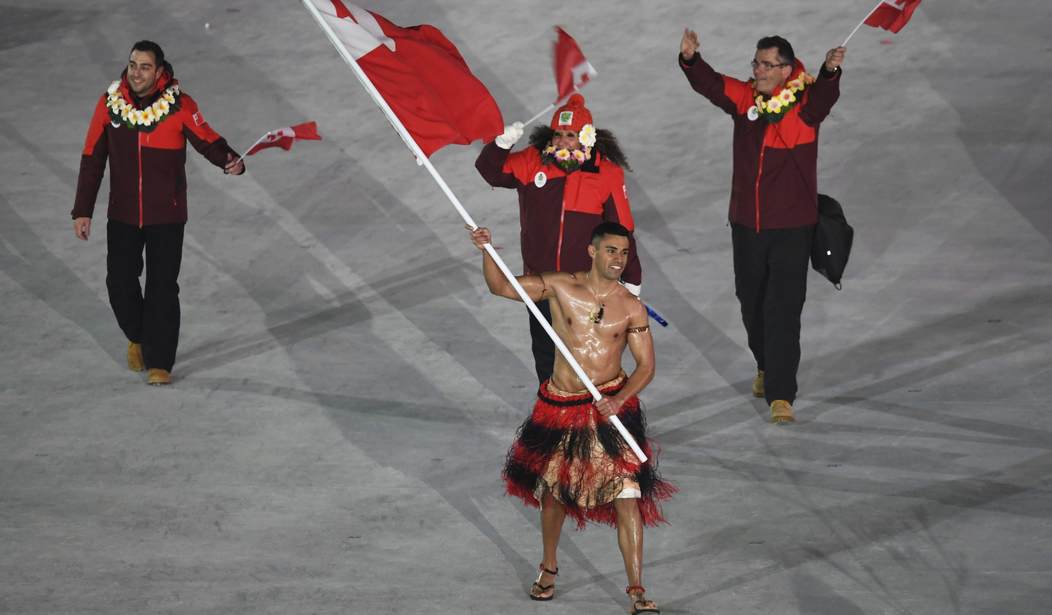The history of the modern Olympic games is littered with stories of dreamers. These athletes work hard, sometimes in obscurity, training long hours for that moment of glory as the world watches.
Sometimes those moments end in medals, but obviously the vast majority don’t make it to the podium. And some of the athletes who finish nowhere near the gold have the most fascinating stories. And these unbelievable Olympians have done what they’ve done without the left-leaning politics that seem to have permeated these games.
Meet German Madrazo. This cross-country skier from Mexico—not exactly a hotbed of Winter Olympic activity—finished dead last in the 15-kilometer men’s individual race. That’s 115th out of 115. As he completed the course, the 43-year-old who took up skiing in 2017 grabbed a Mexican flag and celebrated his country in the most heartwarming way imaginable.
Mexican cross-country skier German Madrazo crossed the finish line last, but he was all smiles as he did it proudly carrying his nation's flag. ❤️ pic.twitter.com/8qILNmFjyE
— NBC Olympics (@NBCOlympics) February 16, 2018
Other skiers from warm-weather nations greeted Madrazo in triumph as he crossed the finish line. This Olympian gives hope to some of us old guys.
Some athletes go so far as to compete for a country other than their homeland. You’re probably wondering how this is possible. According to the Olympic charter, an athlete must “be a national of the country for which he or she is competing.” In Pyeongchang, 178 athletes are nation-jumpers, which constitutes around six percent of the athletes competing for nations in which they weren’t born.
A couple of this year’s speed skaters provide good examples of how many athletes wind up competing for a different nation. Maame Biney was born in Ghana, but she has lived in the United States since she was five, so she competes for the red, white, and blue. Ted-Jan Bloemen has dual citizenship in the Netherlands and Canada, so he competed for Canada because the Dutch speed skating team has such a deep bench.
But a few athletes made their way to South Korea with some different goals in mind. You might remember Pita Taufatofua as the shirtless Tongan flag bearer both in Rio and in the frozen opening ceremonies in Pyeongchang. He’s actually an Australian native of Tongan descent who has managed to compete in both the Summer and Winter Olympics.
Two years ago in Rio, Taufatofua lost in the first round in judo, losing 19-1 (which is apparently a bad score). This year, he took up cross-country skiing a dozen weeks before the Olympic Games, learning how to ski on roller skis, which he called “the worst thing possible.”
Taufatofua went into the 15-kilometer men’s individual race with two simple ambitions: “finish before they turn the lights off” and “don’t ski into a tree.” He wound up finishing 114th—that’s right, one place above German Madrazo—and considered his finish a triumph. He’s also considering a Hollywood career.
Another nation-jumping Olympian with a somewhat less inspiring story is Elizabeth Swaney. The Oakland native gamed the system, competing for Hungary (the homeland of her grandparents) in an event in which not many women compete in order to try to get closer to the gold. The problem? Swaney isn’t terribly good on skis.
Swaney chose the women’s freestyle skiing halfpipe event, one in which Olympians needed to finish in the top 30 in a number of International Ski Federation (FIS) World Cup events while accumulating enough points. She registered for events in which fewer than 30 women competed and performed minimally challenging runs so that she did not fall, thus accumulating the required points.
In Pyeongchang, Swaney attempted to qualify with a half-assed halfpipe run as NBC’s broadcast team did its best to treat her seriously:
How freeskier Elizabeth Swaney made it to the #WinterOlympics with this very simple halfpipe run: https://t.co/enfDyoQjGC pic.twitter.com/kHTAV7XND4
— NBC Olympics (@NBCOlympics) February 20, 2018
She failed to qualify with a high score of 31.40 (the lowest qualifying score was 78.20) and expressed her disappointment at failing:
She told Reuters that she was “really disappointed” at not having qualified for Tuesday’s final, but she showed some pride in simply getting as far as she did, saying, “I worked really for several years to achieve this.”
Swaney’s run was so infamous that Hungarian officials are looking into making changes to their selection process for Olympic athletes:
“We, the Hungarian Olympic Committee, have to learn the lessons from this case, and we must consider rethinking our nomination procedures,” a Hungarian team spokesman told Reuters via email.
“We shall be doing this, with the assistance of the appropriate experts, in the near future,” the spokesman added.
But at least Elizabeth Swaney can say she was an Olympian.
When we look back at Pyeongchang years from now, we’ll remember the triumphant stories of gold medal winners and athletes who overcame the odds to win. But I hope we don’t forget competitors like German Madrazo, Pita Taufatofua, and Elizabeth Swaney — Olympians who didn’t make it anywhere close to the medal podium (and even carried a measure of infamy with them) but brought us fascinating stories nonetheless.









Join the conversation as a VIP Member